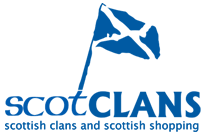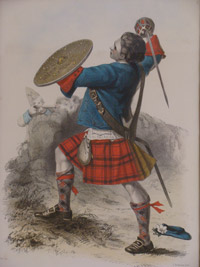WordPress database error: [Got error 28 from storage engine]
SELECT t.*, tt.*, tr.object_id FROM wp_terms AS t INNER JOIN wp_term_taxonomy AS tt ON tt.term_id = t.term_id INNER JOIN wp_term_relationships AS tr ON tr.term_taxonomy_id = tt.term_taxonomy_id WHERE tt.taxonomy IN ('category', 'post_tag', 'post_format') AND tr.object_id IN (19718) ORDER BY t.name ASC
Clan MacBean History
The Gaelic ‘Ban’ or Bain means ‘fair’ and with Scottish blood made up with so much Norse and Germanic stock this descriptive term could have been applied to many people. Indeed the name is found associated with several clans in many districts.
There was an early Scottish King called Donald Ban. Through various Gaelic manipulations the three forms of the name have become MacBean, McVean and MacBain.
One area where the MacBeans became well established was eastern Inverness-shire where they settled having come from Lochaber in the suite of the heiress of Clan Chattan. The MacBeans were warriors and have fought with distinction right into this century.
Myles MacBean strongly supported MacKintosh against the Red Comyn, and MacBeans died fighting for MacKintosh at the Battle of Harlaw in 1411.
The MacBeans of Kinchyle became the principal MacBean family and they signed a number of important agreements with Clan Chattan in 1609, 1664 and 1756.
Other important MacBean families were MacBean of Tomatin in Strathdearn, MacBean of Faillie in Strathnairn and the MacBeans of Drummond in the parish of Dores.
At the Battle of Culloden a breach opened in a wall. Filling the breach, Gillies MacBean killed fourteen of the Hanovarian enemy before being killed himself. As history repeats itself, Major-General William MacBean, who attained his rank in 1873 after joining the 93rd Regiment as a private, gained the Victoria Cross for his actions at the main breach of the Begum Bagh at Lucknow in 1858, where he single-handedly killed eleven enemy. The Victoria Cross is the highest medal the British Empire can award.
Major Forbes MacBean earned the D.S.O. for his bravery in 1897 when fighting for the Gordon Highlanders when taking the heights of Dargai.
Clan MacBean Posts







